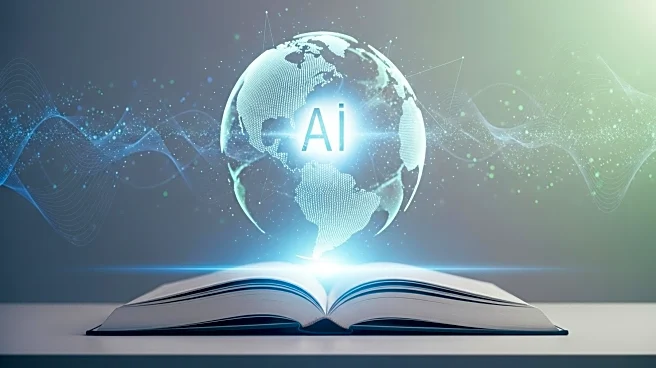What's Happening?
A new study highlights the dual impact of AI on education, warning that current educational practices may not align with future job market demands. The research, led by Andrew J. Peterson, suggests that AI's role in automating tasks could lead to an 'education trap,' where students are trained in skills that may become obsolete. The study emphasizes the need for education systems to adapt to the evolving economic landscape.
Why It's Important?
The findings underscore the importance of aligning educational curricula with future labor market needs. As AI continues to automate routine tasks, there is a growing need for education systems to focus on developing non-cognitive skills that are less susceptible to automation. This shift is crucial for preparing students for a rapidly changing job market and ensuring workforce readiness.
What's Next?
Education policymakers and institutions may need to reevaluate their curricula and teaching methods to address the challenges posed by AI. By integrating labor market foresight into planning processes, education systems can better align teaching priorities with economic realities. This may involve emphasizing skills such as critical thinking, adaptability, and emotional regulation.










